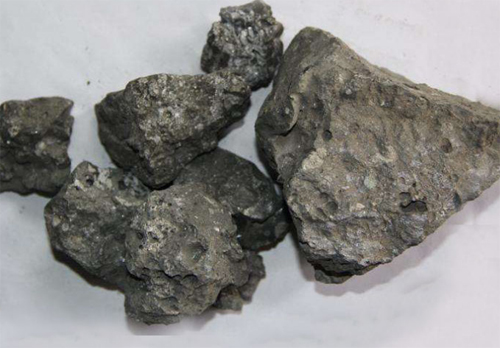
Calcium, a key element in steelmaking, plays a vital role in enhancing the performance and productivity of the steel industry. This article delves into the importance of calcium addition during the steelmaking process, exploring its impact on deoxidation, inclusion modification, desulfurization, and grain refinement. With a focus on the benefits calcium brings to steel production, this article highlights its significance in improving the quality, strength, and overall efficiency of steel manufacturing.
Deoxidation is a critical step in steelmaking to remove oxygen from the molten metal. Calcium, in the form of calcium silicon (CaSi), is commonly added to facilitate deoxidation. Calcium has a high affinity for oxygen, forming calcium oxide (CaO) and calcium silicate (CaSiO3) compounds. These compounds react with the dissolved oxygen, resulting in the formation of non-metallic inclusions, which are then easily removed through slag formation. By effectively deoxidizing the steel melt, calcium addition promotes steel purity and cleanliness, reducing the risk of defects and ensuring the production of high-quality steel.
Inclusions, non-metallic particles present in steel, can significantly affect its mechanical properties. Calcium plays a crucial role in modifying and controlling the nature of these inclusions. During steelmaking, calcium reacts with impurities such as sulfur, oxygen, and phosphorus, forming stable compounds. These compounds combine with the inclusions, resulting in the formation of calcium-aluminate and calcium-silicate-based inclusions. The modified inclusions are spherical in shape and less detrimental to the steel's mechanical properties. They act as barriers, impeding crack propagation and improving the steel's toughness, ductility, and fatigue resistance. By facilitating inclusion modification, calcium addition contributes to the production of high-performance steel with improved mechanical properties.
Desulfurization is a critical process in steelmaking to reduce the sulfur content, which can negatively impact the steel's mechanical properties. Calcium, in the form of calcium oxide (CaO) or calcium carbonate (CaCO3), is commonly used for desulfurization. When added to the steel melt, calcium compounds react with sulfur, forming calcium sulfide (CaS). Calcium sulfide has a higher melting point than steel, enabling it to float to the surface as slag, facilitating easy removal. Additionally, calcium helps reduce the viscosity of the slag, enhancing the efficiency of desulfurization. By effectively removing sulfur, calcium addition improves the quality and performance of steel, ensuring it meets the stringent requirements of various applications.
Grain refinement is a crucial aspect of steel production as it directly influences the steel's strength and toughness. Calcium, in the form of calcium aluminates (CaAl2O4) or calcium silicates (CaSiO3), acts as a grain refiner during solidification. When added to the steel melt, calcium-rich particles serve as nuclei for grain formation, restricting the growth of grain size. This results in the formation of fine-grained microstructures, which impart improved strength, ductility, and resistance to fatigue in the steel. By promoting grain refinement, calcium addition enhances the structural integrity of the steel, making it suitable for demanding applications that require high-performance materials.

Calcium addition is a crucial practice in steelmaking, offering significant benefits to the industry. Its role in deoxidation, inclusion modification, desulfurization, and grain refinement contributes to improved steel quality, enhanced mechanical properties, and increased productivity. Calcium ensures steel purity, controls the nature of inclusions, reduces sulfur content, and strengthens the steel structure. By harnessing the advantages of calcium addition, steel manufacturers can optimize their processes and produce high-quality steel that meets the diverse demands of modern applications. Calcium's impact on steelmaking is indispensable, driving the advancement of the steel industry worldwide.

Write a Message